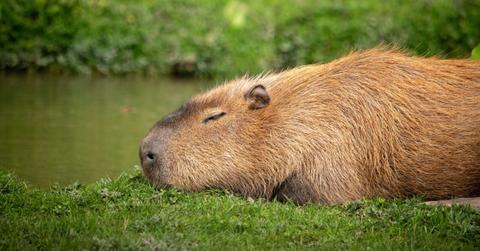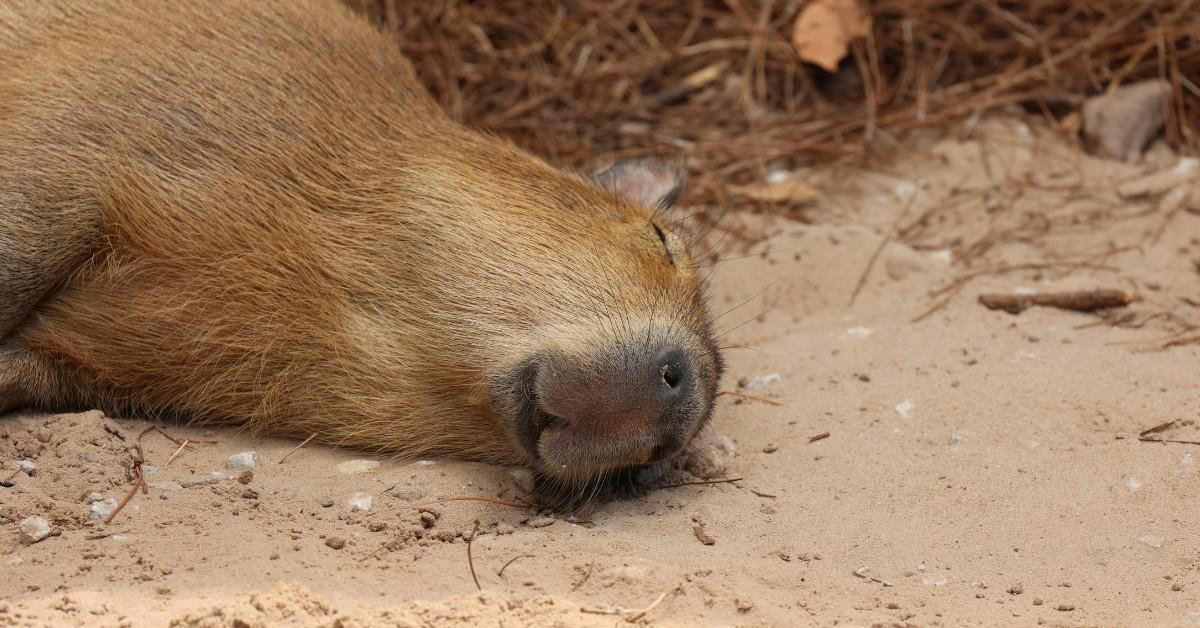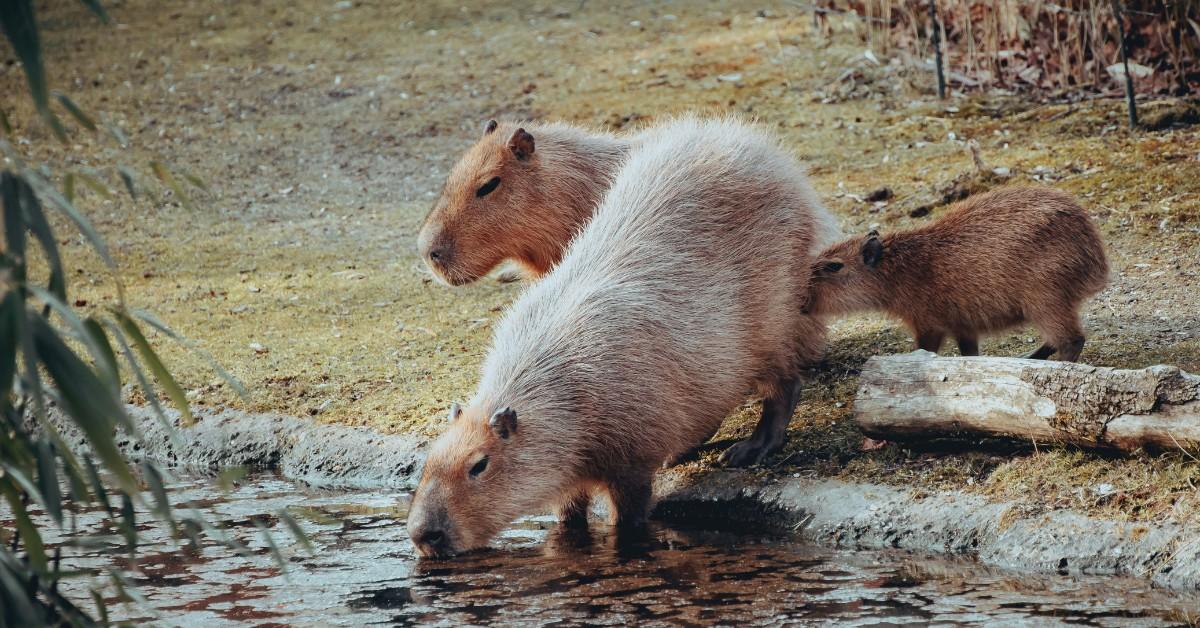Capybaras May Be Cute, but Do They Make Good Pets?
These cuddly looking critters are best left in the wild.
Published March 26 2025, 3:19 p.m. ET

If you've never seen a capybara before, you're missing out. The Central and South American natives are quite a sight to behold, thanks to their short legs and long torsos. In fact, these large semi-aquatic rodents go by the scientific name Hydrochoerus hydrochaeris, which literally translates to "water hog," giving you a good idea of what they look like when they're out in the wild.
The capybara is actually related to the guinea pig, which has prompted some to wonder whether they can be kept as pets like their distant cousins. The answer to that question is a complicated one since they qualify as exotic animals in several states, making them illegal to keep in your home or on your property.
Keep reading to learn more about raising capybara, including whether or not they make a good family pet.

Do capybaras make good pets?
The short answer to that question is no.
Capybaras have very significant needs, according to WebMD's Healthy Pets, which can make them quite expensive to care for. First, the semi-aquatic nature of these animals means that they need to constantly be close to a water source, and that means more than just a bowl for drinking water or to splash around in. In the wild, these animals spend a lot of time swimming, so they'll need a water source that's large enough for them to do the backstroke.
Next, these rodents work up a pretty big appetite doing all that swimming. A typical capybara can put away up to eight pounds of food a day. And that food will need to be fortified if they're being kept in captivity since they won't get the same level of nutrients as they would while foraging, so you'll need to splurge for the good stuff to keep your capybara healthy.
Lastly, given the social nature of the capybara, you could never keep just one as a pet. Instead, you would need to bring at least two capybaras home, which means you'll need double the space and food to make it work. That is, if capybaras are even legal to keep in your state.
According to Newsweek, many U.S. cities and states have laws against keeping exotic animals like these as pets, including New York City, where it's illegal.

Keeping wild animals as pets is inhumane.
While it may be exciting to imagine having an adorable capybara running around your house, you'll need to think through the ethical questions of pulling a wild animal away from their home so that you can make them your pet.
Not only is it unlikely that you'll be able to replicate the environment that they had when they were living in their natural habitat, but the shock of trying to turn a wild animal into a domestic one can be too much for some folks to handle.
Instead, it's best to enjoy animals like the capybara by watching them in their natural habitat from afar or by learning about them in the pages of a book.